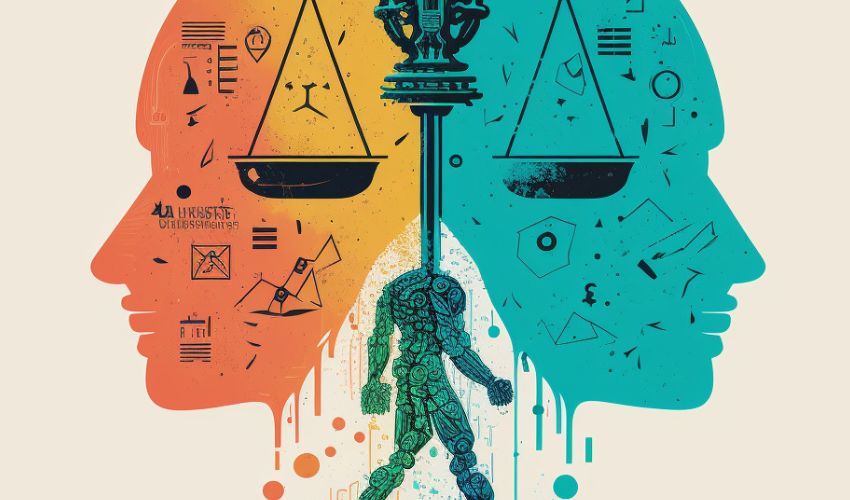Artificial Intelligence (AI) has become deeply integrated into modern life, influencing healthcare, business, education, and governance. But as the technology grows, so do concerns about AI ethics. The pressing question is: How do we ensure AI serves humanity rather than undermining it?
Why AI Ethics Are Important
Without ethical guidelines, AI can cause significant harm. Below are the key risks:
- Algorithmic Bias: reproducing stereotypes from biased data.
- Privacy Concerns: misuse of personal data and mass surveillance.
- Economic Exploitation: prioritizing profits over human well-being.
- Job Displacement: replacing millions of roles with automation.
- Security Risks: use in disinformation or autonomous weapons.
Core Principles of AI Ethics
Transparency and Explain ability
AI systems must provide clear reasoning behind decisions.
Fairness and Equality
Prevent discrimination based on race, gender, or background.
Accountability
Developers and companies should take responsibility for AI outcomes.
Safety and Reliability
Ensure applications remain secure and error-free.
Privacy and Data Protection
Safeguard personal data from misuse or unauthorized access.
Sustainability
Encourage eco-friendly and energy-efficient AI development.
Major Challenges in Applying AI Ethics
- Regulatory Gaps: Laws often lag behind innovation.
- Corporate Interests: Profits can overshadow ethical responsibility.
- Lack of Global Standards: No unified international framework exists.
- Public Awareness Gaps: Many users do not understand how AI affects their lives.
Real-World Ethical Issues in AI
- AI in Recruitment: Hiring tools favoring men over women due to biased training data.
- Facial Recognition: Governments facing backlash for invasive surveillance.
- Deepfakes: AI-generated fake videos used for political or criminal purposes.
How to Ensure AI Serves Humanity

1. Establish Clear AI Regulations
Governments must set frameworks such as the EU AI Act to classify risks.
2. Build Transparent AI Systems
Users should understand the reasoning behind AI-generated outcomes.
3. Involve Civil Society
Academia, NGOs, and communities must join the ethical AI discussion.
4. Promote AI Education and Awareness
Public knowledge is essential to foster accountability.
5. Support Green AI Development
Encourage energy-efficient AI models that align with sustainability goals.
Benefits vs. Risks of AI (Comparison Table)
| Area | Benefits | Risks |
| Healthcare | Faster and more accurate diagnoses | Data privacy concerns |
| Economy | Boosted productivity and reduced costs | Job displacement in specific industries |
| Security | Improved crime detection and cyber defense | Mass surveillance and restriction of freedoms |
| Education | Personalized and adaptive learning experiences | Reduced critical thinking and over-reliance on AI |
| Environment | Better monitoring of pollution and climate change | High energy consumption for large AI models |
Future Recommendations for Responsible AI
- Develop international AI charters similar to global climate agreements.
- Promote ethical AI research within universities and institutions.
- Enforce corporate transparency standards for AI deployment.
- Create independent oversight bodies to monitor AI applications.
- Conduct regular audits to prevent bias and unethical practices.
International Collaboration for Ethical AI
One of the most effective ways to ensure AI serves humanity is through international collaboration.
As AI technologies transcend borders, isolated national regulations may be insufficient to manage risks such as algorithmic bias, privacy violations, or misuse in autonomous systems.
By fostering global partnerships between governments, academic institutions, and industry leaders, we can create shared ethical standards that guide AI development worldwide.
Initiatives such as joint research projects, international ethics councils, and cross-border policy frameworks can help harmonize approaches, prevent regulatory loopholes, and ensure AI benefits people globally rather than concentrating power in a few hands.
Conclusion: AI as a Partner to Humanity
AI ethics are no longer optional they are vital. Without oversight, technology can amplify inequality, invade privacy, and threaten freedoms. The real challenge is not stopping innovation, but steering it responsibly toward fairness, freedom, and sustainability.
When developed and applied with strong ethical foundations, Artificial Intelligence can become a true partner in building a more just and sustainable world.

